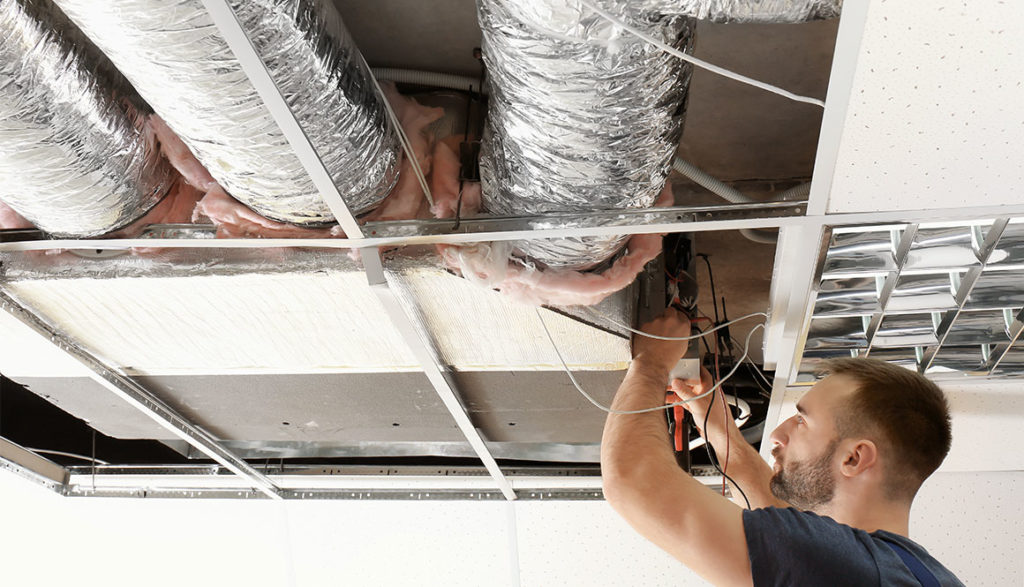Indoor air quality is a crucial yet often neglected aspect of our daily lives. Many people are ignorant that the air within our homes and workplaces can be worse than the air outside. This is where heating, airflow, and air conditioning systems, commonly referred to as HVAC, come into play. their website but also are crucial in sustaining the air we breathe. Understanding how HVAC works can help you create a more pleasant living environment for you and your family.
As we spend a substantial portion of our time indoors, the quality of indoor air has a significant impact on our health, comfort, and overall well-being. From reducing allergens and pollutants to maintaining proper humidity levels, a well-functioning HVAC system is crucial. This article will guide you through the various components of HVAC, explore typical problems you might encounter, and provide expert tips on maximizing your system's efficiency and enhancing indoor air quality. Whether you are a property owner looking to enhance your system or a business owner seeking to enhance workplace conditions, understanding HVAC is key to creating a cozy and wholesome environment.
Grasping Heating, Ventilation, and Air Conditioning Systems
HVAC is heating, ventilation, and cooling, that are essential components in maintaining a pleasant indoor setting. These systems function to regulate heat, moisture, and air quality inside home plus commercial spaces. By integrating the 3 functions, they have a crucial role in ensuring that your home or office remains comfortable all year round no matter the outside temperature.
Heating systems typically utilize furnaces and heat pumps for warm up spaces in colder months. On the other hand, air conditioning systems help lower the temperature of the air in the summer, delivering comfort from heat plus humidity. Airflow is also crucial as it introduces new outdoor air and expels stale indoor air, reducing contaminants plus improving general air conditions. A properly working HVAC system allows for experiencing enhanced comfort plus better indoor atmosphere.
To completely understand the way HVAC systems operate, you should familiarize oneself with their components, such as thermostats, air ducts, air filters, and more. Ongoing upkeep plus awareness of usual issues may assist guarantee that HVAC system functions effectively plus reliably. Becoming familiar with the distinct characteristics of your heating and cooling system can also help in making knowledgeable choices about improvements plus repairs, thereby enhancing the standard of your living space.
The Effect of HVAC on Indoor Air Quality
Indoor air quality is essential for maintaining a healthy and comfortable living space, and HVAC systems play a critical role in this aspect. Well-designed and upkept HVAC systems purify and circulate the air, removing pollutants, allergens, and contaminants that can negatively impact health. This is particularly crucial in homes and commercial buildings where people spend a lot of time. Proper ventilation, a critical component of HVAC systems, ensures that clean air is brought in while old air is removed, promoting a fresher indoor environment.
Managing humidity is an additional important function of HVAC systems that significantly impacts indoor air quality. High humidity levels can result in the growth of fungus, bacteria, and dust mites, that can instigate allergies and respiratory issues. Conversely, reduced humidity can cause discomfort and lead to dry skin and respiratory problems. An effective HVAC system helps manage humidity levels, ensuring a consistent atmosphere that enhances comfort and reduces health risks.

Finally, the varieties of air filters used in HVAC systems considerably influence indoor air quality. High-efficiency particulate air (HEPA) filters, for example, are specifically made to capture minute particles and allergens, providing fresher air. Regular" maintenance and prompt replacement of air filters are essential to ensure that these systems function at their best. By selecting the best filters and maintaining the system in top shape, homeowners and businesses can efficiently improve indoor air quality, enhancing overall well-being and productivity.
HVAC Care and Performance Recommendations
Frequent maintenance is crucial for ensuring your HVAC system running efficiently and prolonging its duration. Start by replacing the air filter media every 1 to three months, based on usage and the type of filter. Blocked filters restrict airflow, forcing your system function harder and causing increased energy usage and stress on the system. In addition, make sure that the outside unit is free from debris, leaves, or any obstructions, as these can impede its performance.
Performing seasonal tune-ups is another valuable strategy to enhance HVAC performance. Plan professional check-ups at least 2 times a year—one time before summer and one time before winter. During these check-ups, a technician can identify potential issues, clean essential components, and enhance the system's efficiency. This preventive approach does not only guarantee a comfortable environment but also helps in avoiding costly fixes down the line.
Lastly, consider upgrading to intelligent thermostats and energy-efficient HVAC systems. Smart thermostats enable you to program temperatures based on your routine, reducing energy loss when you're not home. Choosing Energy Star-rated equipment can lead to significant long-term savings on energy bills while also contributing to a reduction in your carbon footprint. By implementing these maintenance and efficiency tips, you'll create a more pleasant and cost-effective indoor environment.
